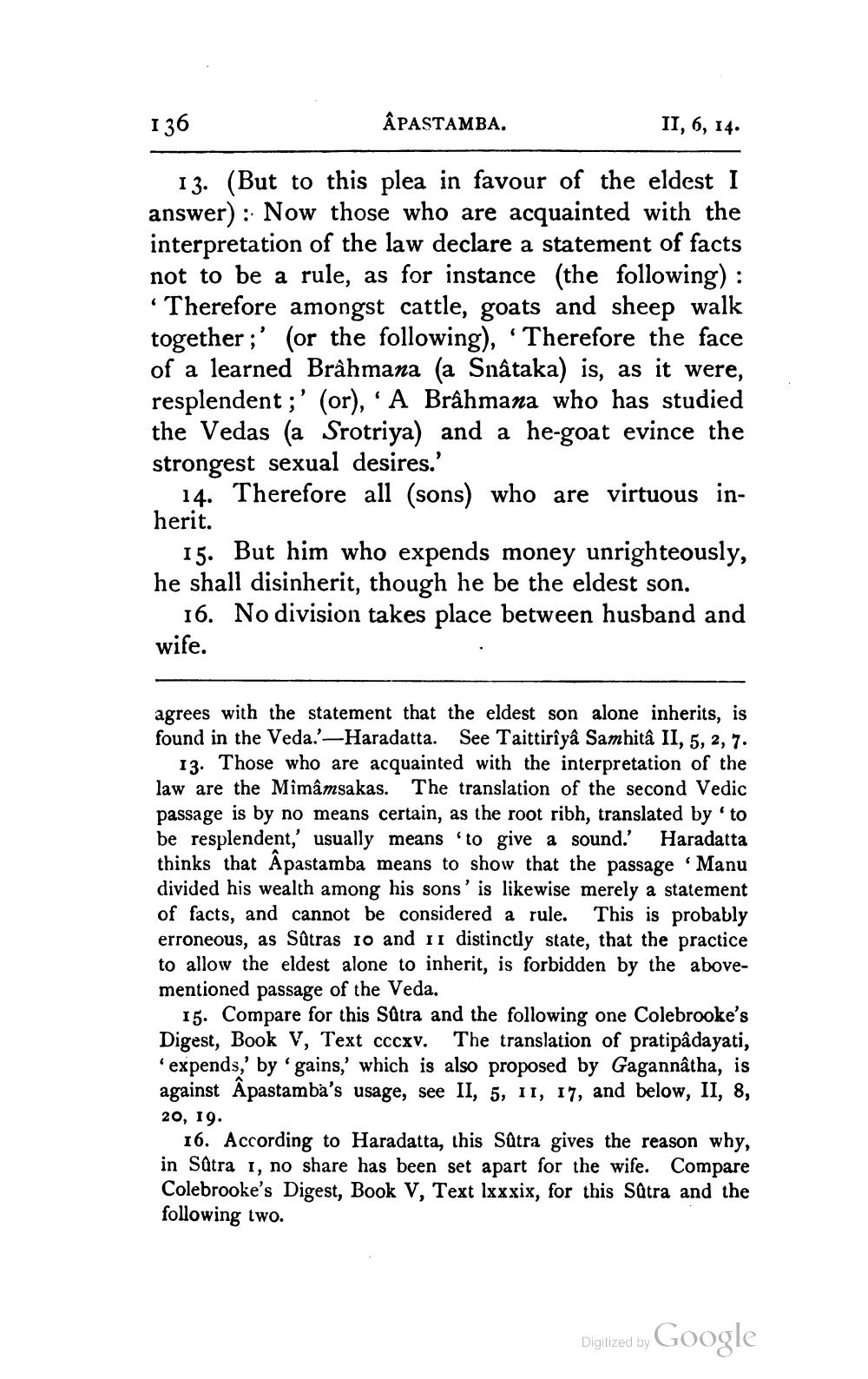________________
136
ÂPASTAMBA.
II, 6, 14.
13. (But to this plea in favour of the eldest I answer): Now those who are acquainted with the interpretation of the law declare a statement of facts not to be a rule, as for instance (the following): 'Therefore amongst cattle, goats and sheep walk together;' (or the following), 'Therefore the face of a learned Brahmana (a Snâtaka) is, as it were, resplendent;' (or), A Brâhmana who has studied the Vedas (a Srotriya) and a he-goat evince the strongest sexual desires.'
6
14. Therefore all (sons) who are virtuous inherit.
15. But him who expends money unrighteously, he shall disinherit, though he be the eldest son.
16. No division takes place between husband and wife.
agrees with the statement that the eldest son alone inherits, is found in the Veda.'-Haradatta. See Taittirîyâ Samhitâ II, 5, 2, 7.
13. Those who are acquainted with the interpretation of the law are the Mimâmsakas. The translation of the second Vedic passage is by no means certain, as the root ribh, translated by to be resplendent,' usually means 'to give a sound.' Haradatta thinks that Âpastamba means to show that the passage 'Manu divided his wealth among his sons' is likewise merely a statement of facts, and cannot be considered a rule. This is probably erroneous, as Sûtras 10 and II distinctly state, that the practice to allow the eldest alone to inherit, is forbidden by the abovementioned passage of the Veda.
15. Compare for this Sûtra and the following one Colebrooke's Digest, Book V, Text cccxv. The translation of pratipâdayati, 'expends,' by 'gains,' which is also proposed by Gagannâtha, is against Apastamba's usage, see II, 5, 11, 17, and below, II, 8,
20, 19.
16. According to Haradatta, this Sûtra gives the reason why, in Sûtra 1, no share has been set apart for the wife. Compare Colebrooke's Digest, Book V, Text lxxxix, for this Sûtra and the following two.
Google
Digitized by




